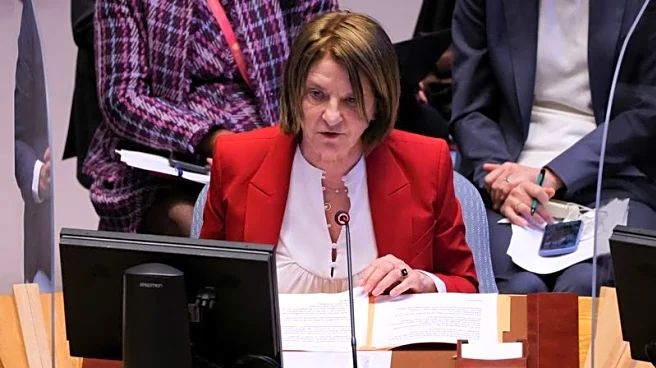What's Happening?
A new dating theory has emerged, suggesting that women who openly express disdain for men might be the most desirable partners. This idea, popularized by TikTok user James White, posits that such women are likely to be more selective and thoughtful in choosing their partners. The theory argues that if a woman who generally dislikes men chooses to be with someone, it indicates a serious commitment to that individual. This perspective has gained traction on social media, with proponents claiming that these women are searching for men who defy negative stereotypes and embody positive qualities. The theory suggests that relationships formed under these circumstances could be stronger and more meaningful, as they are based on mutual respect and understanding.
Why It's Important?
The theory challenges traditional dating norms and highlights the importance of emotional intelligence and commitment in relationships. It suggests that men who can prove their worth to skeptical women may foster deeper bonds of loyalty and trust. This perspective could influence dating dynamics by encouraging individuals to focus on genuine qualities rather than superficial traits. It also underscores the significance of actions over words in building trust and validation. As this theory gains popularity, it may impact societal views on relationships, prompting a shift towards valuing emotional depth and authenticity.
What's Next?
As the theory continues to circulate, it may lead to broader discussions about relationship dynamics and the qualities that make partnerships successful. Social media platforms could see increased dialogue around the topic, with individuals sharing their experiences and perspectives. This could also influence dating advice and strategies, encouraging people to prioritize emotional intelligence and genuine connections. Additionally, the theory might inspire further research into the psychological aspects of relationship building and partner selection.
Beyond the Headlines
The theory raises questions about societal expectations and stereotypes in dating. It challenges the notion that women who express skepticism towards men are inherently negative, instead suggesting that they may possess high standards and a desire for meaningful connections. This could lead to a reevaluation of how society perceives women who are vocal about their experiences and preferences. It also highlights the potential for deeper understanding and empathy in relationships, encouraging individuals to look beyond surface-level judgments.










